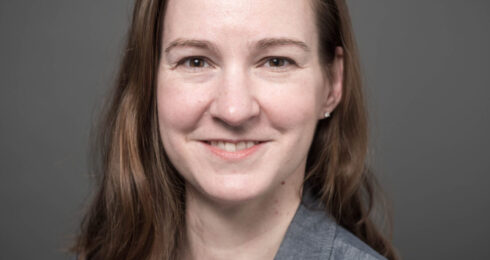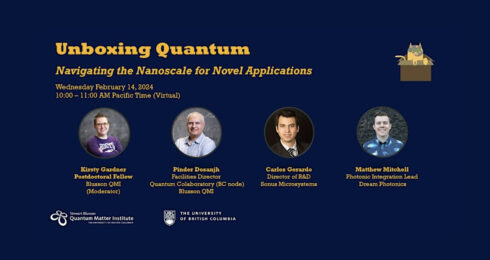On July 26, proposals for QMI’s Grand Challenges were presented to a steering committee for review and feedback. Disorder as a Design Principle of New Functional Materials, is a proposal being developed by a team led by Joerg Rottler, and includes QMI investigators from UBC Chemistry, UBC Electrical & Computer Engineering, and UBC Physics & Astronomy. This Grand Challenge examines the atomic scale mechanisms and conditions under which different forms of entropy can lead to new behavior in materials. These materials will find applications in energy storage and conversion devices, catalysis, and optical coatings.
,
The question of “What can be computed on 100 qubits with 10,000 gates?” is now being examined through the proposal, Pushing the Boundaries of Noisy Intermediate Scale Quantum (NISQ) Computing by Focusing on Quantum Materials Problems. Led by Robert Raussendorf, twelve principal investigators from QMI, UBC, and the University of Tel Aviv hope to demonstrate that existing and near-term quantum computing technologies can generate meaningful results not possible using classical computation alone. The group has outlined a three-pronged approach to questions around fault tolerance, decoherence, and algorithmic implementation. It hopes to make use of a range of technologies, including machine learning training techniques to explore logical processes and a hardware quantum simulator (to be developed under the proposal), to measure and verify computational processes. Besides focusing on the application of technologies, the proposal will also investigate some fundamental questions around what a quantum programming language might look like. What, for instance, might be its ideal primitive data type, or what might be the simplest element for writing a line of quantum code?
,
The proposals are currently under review with QMI’s International Scientific Advisory Board (ISAB).
,



